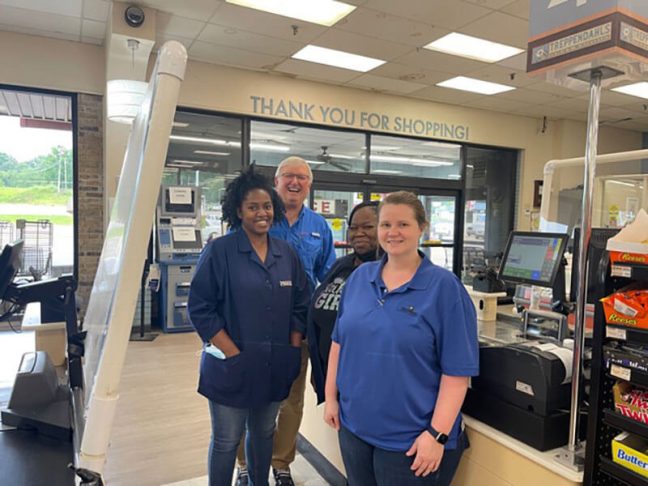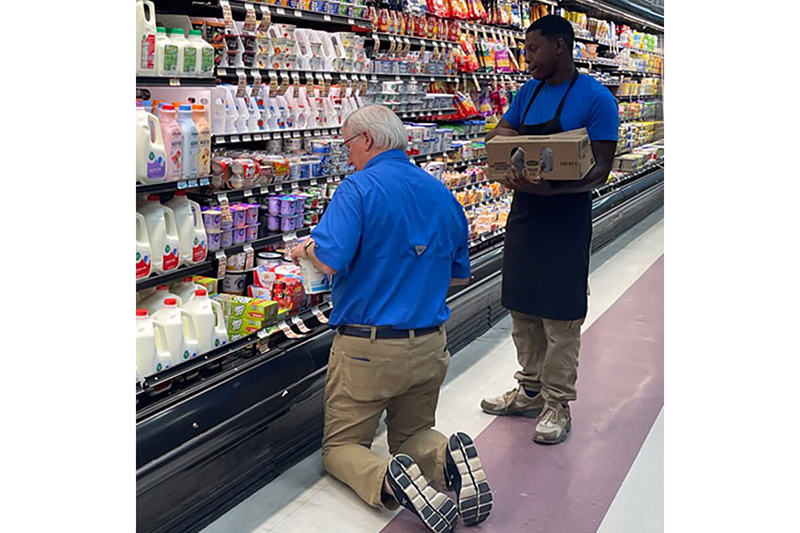Store president expresses interest in state’s liquor/wine sales initiative
by Eric Pereira / staff writer
Wettlin Treppendahl, president and CEO of Treppendahl’s Super Foods in the southwest Mississippi town of Woodville, has noticed lingering effects of the COVID-19 pandemic at his store – from labor shortages to the supply chain. And the former is impacting his business on many levels.
“Many people have been reluctant to work out of fear of the virus,” he said. “The extra unemployment benefits have, in my opinion, hindered us from hiring new employees.”

Treppendahl mentioned his high school and college-aged employees have had difficulties budgeting their time with distance learning.
“Fathers and mothers were affected, but mainly, my employees who are mothers,” he explained. “They have struggled juggling work and trying to supervise distance learning of their children. Even finding childcare for their children has been a struggle. We have tried to work with everyone’s schedules to make it easier for them.”
Turning to the supply chain, Treppendahl’s Super Foods has also noticed that smaller companies are encountering challenges with manufacturing and deliveries.
“Food prices have increased, particularly with meat, poultry and eggs,” Treppendahl said. “The increase in prices have affected the supply chain from top down. The price has been passed down, ultimately affecting the customers.”
Treppendahl foresees challenges in the supply chain in the future. “There will continue to be shortages of many items for the near future. So many manufactures relied on supplies from overseas. For instance, the aluminum shortage greatly affected our suppliers and customers.”
As they move forward, Treppendahl’s will continue to offer online shopping and pick-up.
“We feel that offering online shopping helped our business serve our local customers during the pandemic,” he said. “Many of those who used the service continue to like the convenience of online ordering. However, we are unable to offer delivery due to labor shortages.”
Another goal is exploring different ways to expand existing services. 
“We have recently purchased a photo kiosk for our store. We are thinking if we can increase the number of services provided to the customer, we can increase foot traffic, subsequently, increasing grocery purchases,” Treppendahl said.
The bakery/deli section has expanded its product offerings and he sees ready-to-eat meals as a continuing trend.
The state of Mississippi has started offering electronic Women, Infants and Children purchases in local grocery stores and Treppendahl’s Super Foods has completed its eWIC certification to better serve the community.
In regard to consumer trends, Treppendahl has noticed more people buying in bulk.
“I think this trend will continue because people don’t want to be caught short-handed again,” he said.
Also of note – customers are seeking out new and unusual produce items. “We have had a great deal of success from buying produce from local farmers,” Treppendahl said.
Other trends likely to remain at his store are protective barriers for customers and sales clerks.
“I think sanitizing stations will continue to increase throughout retail businesses,” he said. “As businesses continue to reopen and mandates are lifted, customers and employees have continued to wear masks. I think masks have provided a level of comfort for our essential workers.”
Treppendahl also mentioned an initiative to enable the sale of liquor and wine in the grocery stores.
“Currently, all liquor and wine sales are controlled by the state,” he said. “The sale of these items are limited to only package liquor stores. We feel this would increase competitive pricing, sales tax revenue for our community, as well as foot traffic.”
Whatever lies ahead, Treppendahl is proud of the team beside him. “Because of them, we never missed a beat or had to close our business. We feel their example offered comfort and hope to our community.”

